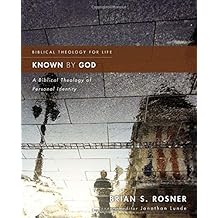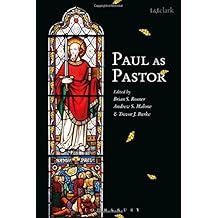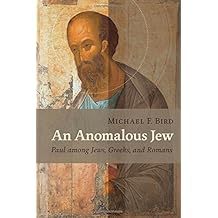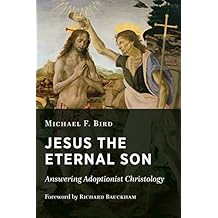Ridley College aspires to be a leader in Christian thought and for a medium sized college – by Aussie standards – it produces a huge output of publications. Consider these:
 Lindsay Wilson, Job (THOTC; Grand Rapids, MI: Eerdmans, 2017).
Lindsay Wilson, Job (THOTC; Grand Rapids, MI: Eerdmans, 2017).
In this commentary Lindsay Wilson shows the book of Job to be a coherent literary work that addresses this question: Is it possible for humans to have genuine faith in God regardless of their circumstances? Wilson argues that Job’s bold, sometimes questioning cries to God are portrayed as legitimate expressions of trust for a righteous person in adversity. Through critical exegesis of the text, Wilson focuses on the message of Job and its implications for practical ministry, examining such key issues as suffering, justice, lament, and faith. He also touches on various pertinent topics in Christian ethics, including individual character, wealth, suicide, and the environment. In a final section Wilson offers guidance on using Job as a resource book for pastoral care and prayer, and he discusses how to teach and preach from the book of Job.
 Lindsay Wilson, Proverbs (TOTC; London: IVP, 2017).
Lindsay Wilson, Proverbs (TOTC; London: IVP, 2017).
In many ways, Proverbs is similar to the wisdom literature of the wider Ancient Near East. However, while the book initially appears to consist primarily of practical advice, it demonstrates that wisdom is grounded in a relationship with God. Lindsay Wilson shows how the first nine chapters provide a reading guide for the many proverbs in subsequent chapters; and how the fear of the Lord, choosing wisdom rather than folly, and having our characters formed by good choices are crucial for understanding Proverbs as Christian Scripture and living out our faith in daily life.
 Lindsay Wilson and David Firth (eds), Exploring Old Testament Wisdom: Literature and Themes (London: IVP, 2017).
Lindsay Wilson and David Firth (eds), Exploring Old Testament Wisdom: Literature and Themes (London: IVP, 2017).
This volume surveys recent developments in the study of Old Testament wisdom; discusses issues that have arisen in Proverbs, Job and Ecclesiastes; examines the Song of Songs, Ruth and some Psalms as wisdom texts; and explores wisdom and biblical theology, the concept of retribution, and the issue of divine absence.
 Andrew S. Malone, God’s Mediators: A Biblical Theology of Priesthood (NSBT; Downers Grove, IL: IVP, 2017).
Andrew S. Malone, God’s Mediators: A Biblical Theology of Priesthood (NSBT; Downers Grove, IL: IVP, 2017).
There are many investigations of the Old Testament priests and the New Testament’s appropriation of such imagery for Jesus Christ. There are also studies of Israel’s corporate priesthood and what this means for the priesthood of God’s new covenant people. However, such studies are less frequently connected with each other: key interrelations are missed, and key questions are not addressed. In this New Studies in Biblical Theology volume, Andrew S. Malone makes two passes across the tapestry of Scripture, tracing these two distinct threads and their intersection with an eye to the contemporary Christian relevance of both themes in both Testaments. Malone shows how our Christology and perseverance as God’s people in an unbelieving world are substantially enhanced by the way the book of Hebrews pastorally depicts Christ’s own priesthood. Furthermore, Christians better understand their corporate identity and mission by discerning both the ministry of individual Old Testament priests and Israel’s corporate calling. Combining the various biblical emphases on priesthood in one place provides synergies that are too easily disregarded in atomizing, individualistic Western societies.
 Brian Rosner, Known by God: A Biblical Theology of Personal Identity (Grand Rapids, MI: Zondervan, 2017)
Brian Rosner, Known by God: A Biblical Theology of Personal Identity (Grand Rapids, MI: Zondervan, 2017)
In the past an individual’s identity was more predictable than it is today. Life’s big questions were basically settled before you were born: where you’d live, what you’d do, the type of person you’d marry, your basic beliefs, and so on. Today personal identity is a do-it-yourself project. Constructing a stable and satisfying sense of self is hard amidst relationship breakdowns, the pace of modern life, the rise of social media, multiple careers, social mobility, and so on. Ours is a day of identity angst. Known by God is built on the observation that humans are inherently social beings; we know who we are in relation to others and by being known by them. If one of the universal desires of the self is to be known by others, being known by God as his children meets our deepest and lifelong need for recognition and gives us a secure identity. Rosner argues that rather than knowing ourselves, being known by God is the key to personal identity.He explores three biblical angles on the question of personal identity: being made in the image of God, being known by God and being in Christ. The notion of sonship is at the center – God gives us our identity as a parent who knows his child. Being known by him as his child gives our fleeting lives significance, provokes in us needed humility, supplies cheering comfort when things go wrong, and offers clear moral direction for living.
 Andrew S. Malone, Brian S. Rosner, and Trevor J. Burke (eds.), Paul as Pastor (London: T&T Clark, 2017).
Andrew S. Malone, Brian S. Rosner, and Trevor J. Burke (eds.), Paul as Pastor (London: T&T Clark, 2017).
Paul as Pastor demonstrates the critical nature of Paul’s pastoral care to his identity and activities. Despite the fact that Paul never identifies himself as a pastor, there is much within the Pauline letters that alludes to this as a possible aspect of Paul’s vocation and commitments, and this has been a topic of relative scholarly neglect. The contributors to this volume consider the household setting of Paul’s pastoral practice, the evidence of Acts and a survey of themes in each of the letters in the traditional Pauline corpus. Additionally, three chapters supply case studies of the Wirkungsgeschichte of Paul’s pastoral practice in the pastoral offices of the Anglican Communion in the denomination’s Ordinal, and in the lives and thought of Augustine of Hippo and George Whitfield. As such Paul as Pastor provides a stimulating resource on a neglected and critical dimension of Paul and his letters and an invaluable tool for those in pastoral ministry and those responsible for their training.
 Michael F. Bird, An Anomalous Jew: Paul among Jews, Greeks, and Romans (Grand Rapids, MI: Eerdmans, 2017).
Michael F. Bird, An Anomalous Jew: Paul among Jews, Greeks, and Romans (Grand Rapids, MI: Eerdmans, 2017).
Though Paul is often lauded as the first great Christian theologian and a champion for Gentile inclusion in the church, in his own time he was universally regarded as a strange and controversial person. In this book Pauline scholar Michael Bird explains why. An Anomalous Jew presents the figure of Paul in all his complexity with his blend of common and controversial Jewish beliefs and a faith in Christ that brought him into conflict with the socio-religious scene around him. Bird elucidates how the apostle Paul was variously perceived — as a religious deviant by Jews, as a divisive figure by Jewish Christians, as a purveyor of dubious philosophy by Greeks, and as a dangerous troublemaker by the Romans. Readers of this book will better understand the truly anomalous shape of Paul’s thinking and worldview.
 Michael F. Bird, Jesus the Eternal Son: Answering Adoptionist Christology (Grand Rapids, MI: Eerdmans, 2017).
Michael F. Bird, Jesus the Eternal Son: Answering Adoptionist Christology (Grand Rapids, MI: Eerdmans, 2017).
Adoptionism—the idea that Jesus is portrayed in the Bible as a human figure who was adopted as God’s son at his baptism or resurrection—has been commonly accepted in much recent scholarship as the earliest explanation of Jesus’s divine status. In this book Michael Bird draws that view into question with a thorough examination of pre-Pauline materials, the Gospel of Mark, and patristic sources. Engaging critically with Bart Ehrman, James Dunn, and other scholars, Bird demonstrates that a full-fledged adoptionist Christology did not emerge until the late second century. As he delves into passages often used to support the idea of an early adoptionist Christology, including Romans 1:3–4 and portions of the speeches in Acts, Bird persuasively argues that early Christology was in fact incarnational, not adoptionist. He concludes by surveying and critiquing notable examples of adoptionism in modern theology.
 Rhys Bezzant (ed), The Global Edwards: Papers from the Jonathan Edwards Congress Held in Melbourne (ACTMS; Eugene, OR: Wipf & Stock, 2017).
Rhys Bezzant (ed), The Global Edwards: Papers from the Jonathan Edwards Congress Held in Melbourne (ACTMS; Eugene, OR: Wipf & Stock, 2017).
In a globalized world, networks are key, whether they are networks of people, ideas, or interests. In this volume of essays on the texts and teachings of Jonathan Edwards, contributors from each continent ask questions about how the world of Edwards explains or illuminates the world of today, whether in the area of systematics, missions, historiography, politics, church-planting, or biblical studies. Such diverse discourses enrich the networks of scholarship that the contributors represent, and provide a global snapshot of contemporary research in Edwards studies. These papers were presented in August 2015 at the Jonathan Edwards Congress held at Ridley College in Melbourne, Australia, where personal engagement with the topics at hand made the worldwide network of Edwards aficionados and scholars not merely a virtual aspiration but an experience in time and space. This book will not only inform its readers but surprise them as well, as they track the power of eighteenth century theological ideas in the late modern world.
 Andrew Laird, Under Pressure: How the Gospel Helps Us Handle the Pressure of Work (Melbourne: City Bible Forum, 2017).
Andrew Laird, Under Pressure: How the Gospel Helps Us Handle the Pressure of Work (Melbourne: City Bible Forum, 2017).
‘Why do I feel so stressed about work?’ ‘Is life always going to feel this overwhelming and busy?’ ‘How can my faith help me cope with the demands of my workplace?’ If you’ve asked these kinds of questions before, you’re not alone. When it comes to our daily work, most of us are feeling the squeeze. We’re Under Pressure. In this short, immensely practical book, Andrew Laird considers the top five pressures we face at work and shows us how the gospel can help us handle them. From addressing our hearts to changing our daily work habits, Andrew provides hope for the working Christian who feels under pressure.















